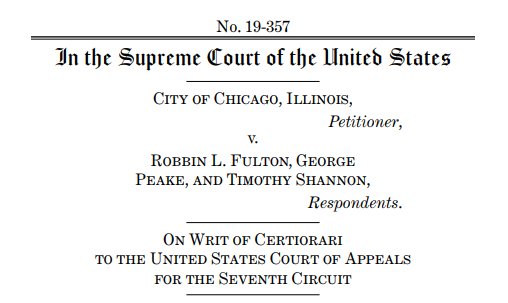The City of Chicago’s reliance on aggressive ticketing and punitive collection practices to raise revenue is part of a troubling, nationwide trend that must be considered as the Supreme Court weighs a bankruptcy issue in an upcoming case, Chicago v. Fulton. This argument is contained in a friend-of-the-court brief filed with the Court by the ACLU of Illinois, the ACLU, the Cato Institute, the Fines and Fees Justice Center, the Institute for Justice, the R Street Institute, and the Rutherford Institute.
The question at issue in the case is whether the City of Chicago is violating the automatic stay and turnover provisions of the Bankruptcy Code by keeping people’s impounded vehicles locked up upon their filing for bankruptcy, which was established to afford debtors a fresh start.
The brief details the rise of Chicago’s draconian impoundment program. Faced with a budget deficit of $650 million in 2011, Chicago raised fees and fines for parking, traffic, and ordinance violations, and began aggressively enforcing ordinances permitting vehicle impoundment for unpaid fines or driving on a suspended license, including licenses suspended for unpaid tickets. Chicago also levies exorbitant fees for impounding, towing, and storing vehicles, and refuses to return vehicles to their owners without full payment.
Chicago’s aggressive ticketing and fees have had a marked impact. People now owe $1.45 billion in ticket debt dating back to 1990. And, this debt resulting from Chicago’s practices caused a tenfold increase in the number of Chapter 13 filings in the Northern District of Illinois between 2007 and 2017, and caused the median debt owed to Chicago in those proceedings to double.
